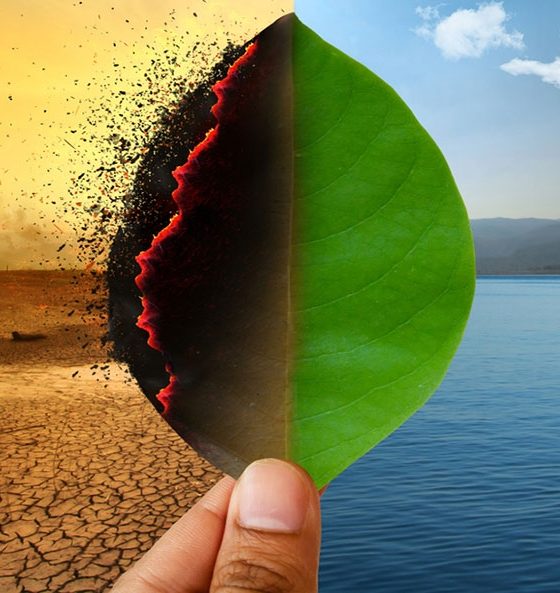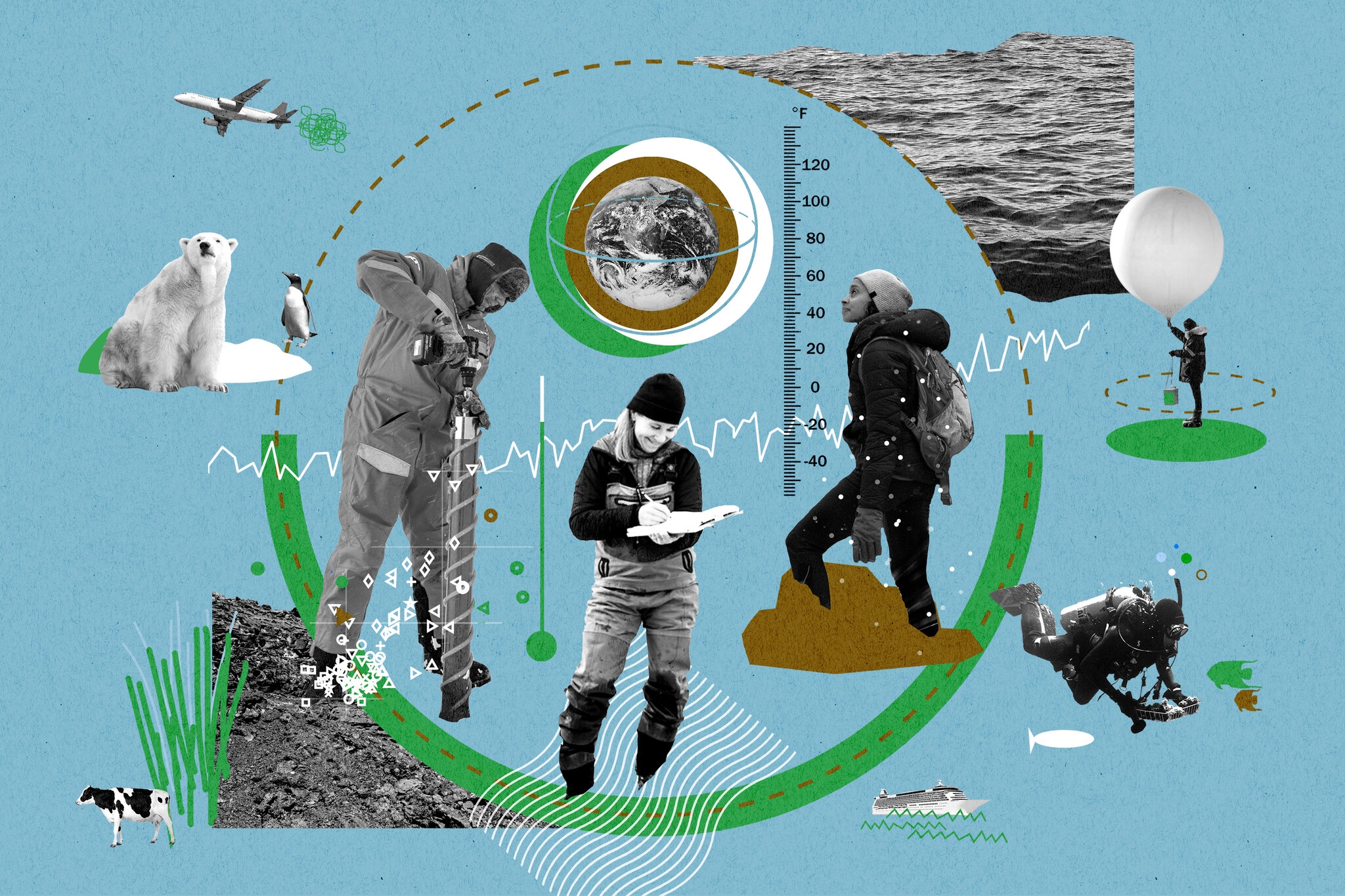
In the modern world, we are faced with global environmental changes that have an increasing impact on our planet. These changes are caused by various factors such as climate change, urban expansion and industrialization. They lead to the deterioration of air, water and soil quality, as well as to the threat to human health and living organisms. The causal relationship between the various environmental changes that occur in our habitat is difficult to determine as they are interconnected and interdependent on each other.
In this article, we have looked at some of the global environmental changes that are happening today. They include climate change, waterlogging, water loss, sea level rise, desert expansion, loss of biodiversity, and others. Each of these factors has a huge impact on the ecology of the planet, but they are all closely related and interact with each other.
However, there is hope for improvement, and many countries are already taking action to reduce greenhouse gas emissions and protect the environment. Such measures include the use of renewable energy sources, the reduction of energy consumption, the introduction of new technologies, and many others. In order to preserve our planet for future generations, it is necessary to make every effort and take appropriate measures to improve the ecology of the world.
Changing of the climate
One of the main causes of environmental change is global warming. The negative impacts of human activity, such as greenhouse gas emissions, are causing heat to be trapped in the Earth’s atmosphere and increasing the average temperature of the planet. This causes a number of consequences, including the melting of glaciers and Arctic ice, rising sea and ocean levels, and changing climatic conditions in various regions of the world.
Environmental pollution
The second factor that has a significant impact on the environment is environmental pollution. Emissions of harmful substances into the atmosphere and water resources, improper disposal of waste and the use of hazardous chemicals lead to serious environmental pollution. This leads to a decrease in air and water quality, poisoning of plants, animals and people, as well as the destruction of ecosystems.
Destruction of ecosystems and extinction of species
The third reason for changing the ecology is associated with the destruction of ecosystems and the extinction of species. Agricultural expansion, deforestation, industrial activity and urban development are destroying natural environments and habitats for many species. This leads to the disappearance of many plants and animals, disruption of biological balance and reduction of biodiversity.
When ecosystems are destroyed, the consequences are far-reaching. Ecosystems provide us with many ecological services, such as purifying water and air, pollinating plants, regulating the climate, and providing food. The loss of these services can lead to imbalances and negative impacts on all kinds of life, including people.
Consumer attitude
Growing consumer consumption and unsustainable manufacturing practices are an important driver of environmental change. With the advent of new technologies and rising living standards, people are becoming more dependent on resource consumption. This leads to unsustainable use of natural resources, overpopulation, large amounts of waste and increased emissions of harmful substances.
Lack of awareness
Of course, one of the main causes of environmental change is a lack of awareness and ineffective action. Many people do not realize the importance of preserving the environment and do not understand the consequences of their actions. Moreover, political inertia and lack of international cooperation also make it difficult to take conservation action.
If the necessary measures are not taken to preserve the environment, the consequences can be serious and have long-term negative effects on our planet and life on it. Increased greenhouse gas emissions and climate change will lead to more frequent and severe extreme weather events, hurricanes, floods and droughts, as well as rising sea levels and loss of natural habitats.
Air and water pollution will have a negative impact on human health and ecosystems. Rising respiratory diseases and drinking water quality problems will threaten the well-being of society. The destruction of ecosystems and the disappearance of species will lead to loss of biodiversity and disruption of the ecological balance, as well as negatively affect food security.
In addition to direct consequences, adverse environmental changes will also have a negative impact on the economy. Losses in agriculture, fisheries and other sectors related to environmental resources will be tangible. In addition, the costs of overcoming environmental challenges and adapting to change will be significant.
Global environmental changes such as drought, earthquakes, floods, rising sea levels, expanding deserts and loss of biodiversity highlight the need for action to adapt to climate change, improve water management, preserve forest ecosystems and reduce the negative impact of human activities on the environment.
Floods and droughts can lead to severe social and economic impacts. They can cause evacuations, destruction of housing, farmland and infrastructure, and loss of life and health. The increase in dry periods and the scarcity of fresh water have a significant impact on agriculture, especially in low-income regions where dependence on agriculture is high.
A decrease in the amount of fresh water leads to limited access to drinking water and makes it difficult to meet basic sanitation. This can exacerbate sanitation, hygiene and health problems, especially in developing countries where water scarcity already exists.
Forest fires lead to the destruction of forest ecosystems, the destruction of many animal and plant species, as well as increased emissions of carbon dioxide into the atmosphere. This exacerbates the problem of climate change and contributes to a further increase in temperatures and weather extremes.
Earthquakes caused by geological activity can also have serious consequences. Infrastructure destruction, loss of life and economic loss can be felt in the affected regions.
In general, the failure to take measures to preserve the environment will lead to a deterioration in living conditions on the planet.
It is important to take urgent and effective action to limit greenhouse gas emissions, protect ecosystems, reduce pollution and raise awareness of environmental issues. Only collective action and international cooperation will enable us to reverse negative changes and secure a sustainable future for all living beings.
In conclusion, environmental change in the modern world is the result of a complex network of cause and effect relationships. Global warming, pollution, destruction of ecosystems and lack of awareness play a key role in changing the ecology. These factors are interconnected and reinforce each other, creating negative consequences for the planet and all its inhabitants.
Collective and individual action must be taken to overcome these challenges. First, there is a need to reduce greenhouse gas emissions and move towards clean energy sources such as solar and wind energy. There is also a need to develop better waste management systems and reduce the use of hazardous chemicals.
Secondly, it is important to preserve and restore ecosystems. This includes the protection of forests, the restoration of marine and coastal ecosystems, and the protection of biodiversity and the sustainable use of natural resources.
Thirdly, it is necessary to raise the awareness and awareness of people. Education and communication about the impact of our activities on the environment should be a priority. It is important to promote environmentally friendly practices and implement them in everyday life.
Finally, cooperation between countries, international agreements and commitments play an important role in solving global environmental problems. Only through joint efforts and coordination can we reverse environmental change and ensure a sustainable future for our planet.
All these measures require our attention, efforts and solidarity. We must understand that our environmental responsibility is of great importance for future generations and for the very planet on which we live. Only through joint action can we maintain and restore balance in the environment and ensure a prosperous future for all living beings.
©ourchildrensworld.bio

Leave a Reply